

On the morning of July 10, the unveiling ceremony of the "Center for Artificial Intelligence Governance and Law" of Shanghai Jiao Tong University was held at the 2020 World Artificial Intelligence Conference Rule of Law Forum.Lin Zhongqin, the President of Shanghai Jiao Tong University and scholar of Chinese Academy of Engineering attended the unveiling ceremony and delivered a speech. Also in attendance were Su Yuezeng, the Secretary of the Party Committee, School of Electronic Information and Electrical Engineering, Shanghai Jiao Tong University, Wang Houji , the Secretary of the Party Committee of KoGuan School of Law, Ji Weidong , a senior professor of liberal arts at Shanghai Jiao Tong University, and Dean of China Institute for Social-Legal Studies,Yang Xiaokang, executive vice president of the Artificial Intelligence Institute, Cheng Jinhua, deputy dean of KoGuan School of Law and vice dean of China Institute for Social-Legal Studies,Zheng Ge , professor of KoGuan School of Law, Jin Yaohui, chief engineer of the Artificial Intelligence Institute, and He Yuan, associate professor of KoGuan School of Law. The ceremony was presided over by Wu Jiannan , the director of the Division for Department of Liberal Arts.
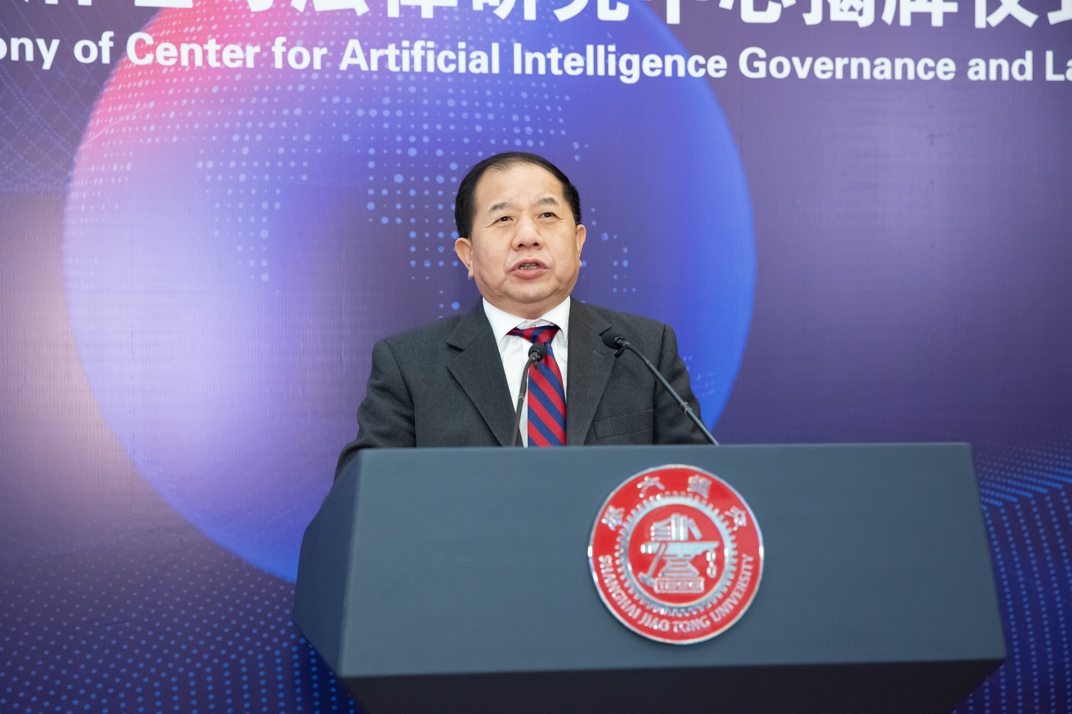
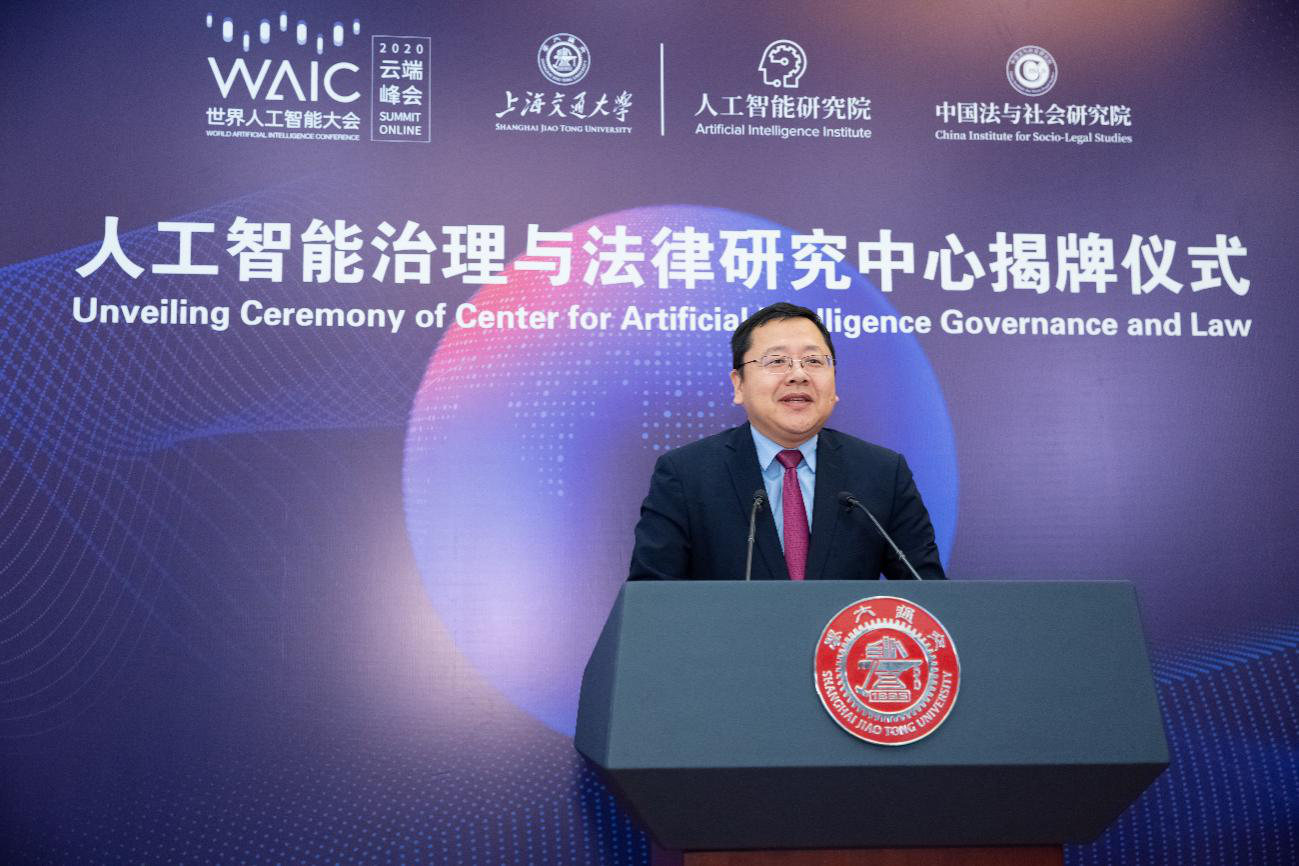
Lin Zhongqin first congratulated the successful establishment of the "Center for Artificial Intelligence Governance and Law" on behalf of Shanghai Jiao Tong University. He stated that the establishment of the Artificial Intelligence Governance and Law Research Center followed the contemporary innovations around AI and will further enhance the standing of SJTU, which heralds that Chinese law takes the initiative to change, is open and embraces emerging technologies, charts a bright path for future legal theory and practice, and will create a world-class academic platform that combines law and technology. He hopes that the center is committed to promoting interdisciplinary research at the intersection of arts and sciences, introducing intellectual resources in the field of artificial intelligence and big data into the field of law, and exploring the innovation of social governance models and legal research paradigms; promoting the governance framework research and mechanism design in the fields of artificial intelligence and big data so as to form a multi-rule system of policies, ethics, laws and regulations, and is committed to the mutual complementarity of technological innovation and institutional innovation.
Subsequently, Lin Zhongqin,Wu Jiannan ,Su Yuezeng , Wang Houji,Ji Weidong , and Yang Xiaokang jointly unveiled the “Center for Artificial Intelligence Governance and Law”, with Cheng Jinhua,Zheng Ge ,Jin Yaohui , He Yuan and other core members of the center were jointly photographed as a group.
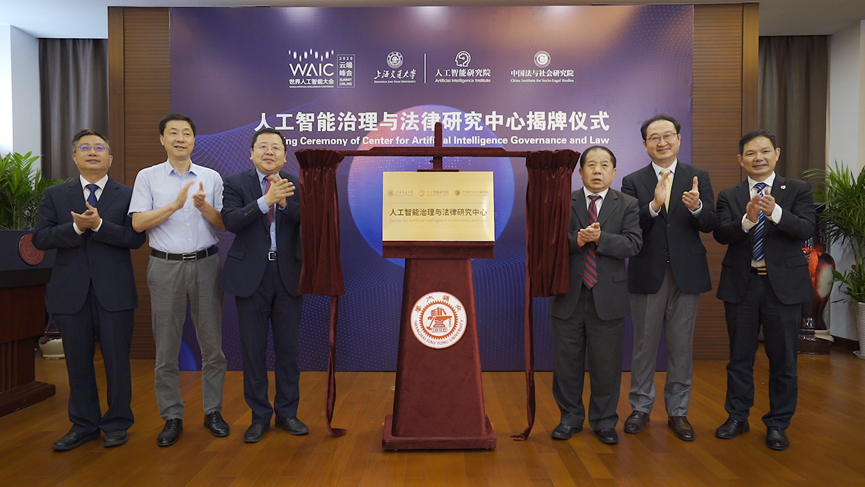
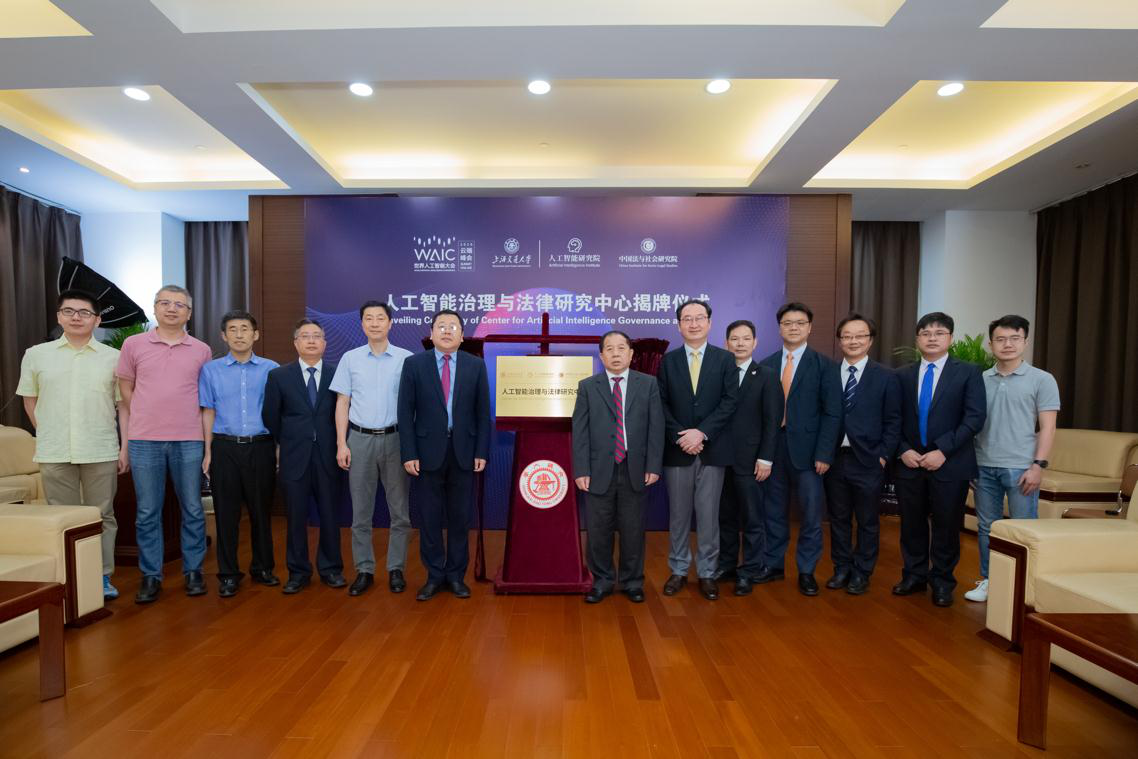
The “Center for Artificial Intelligence Governance and Law” was jointly established by the Shanghai Jiao Tong University Artificial Intelligence Institute and China Institute for Social-Legal Studies. Its main research directions are artificial intelligence governance, legal artificial intelligence, legal applications of big data, network and data security, and data institutionalized governance. Professor Ji Weidong serves as the director of the Center. At the unveiling ceremony, President Lin Zhongqin issued an appointment letter to the director of the Center, Professor Ji Weidong .
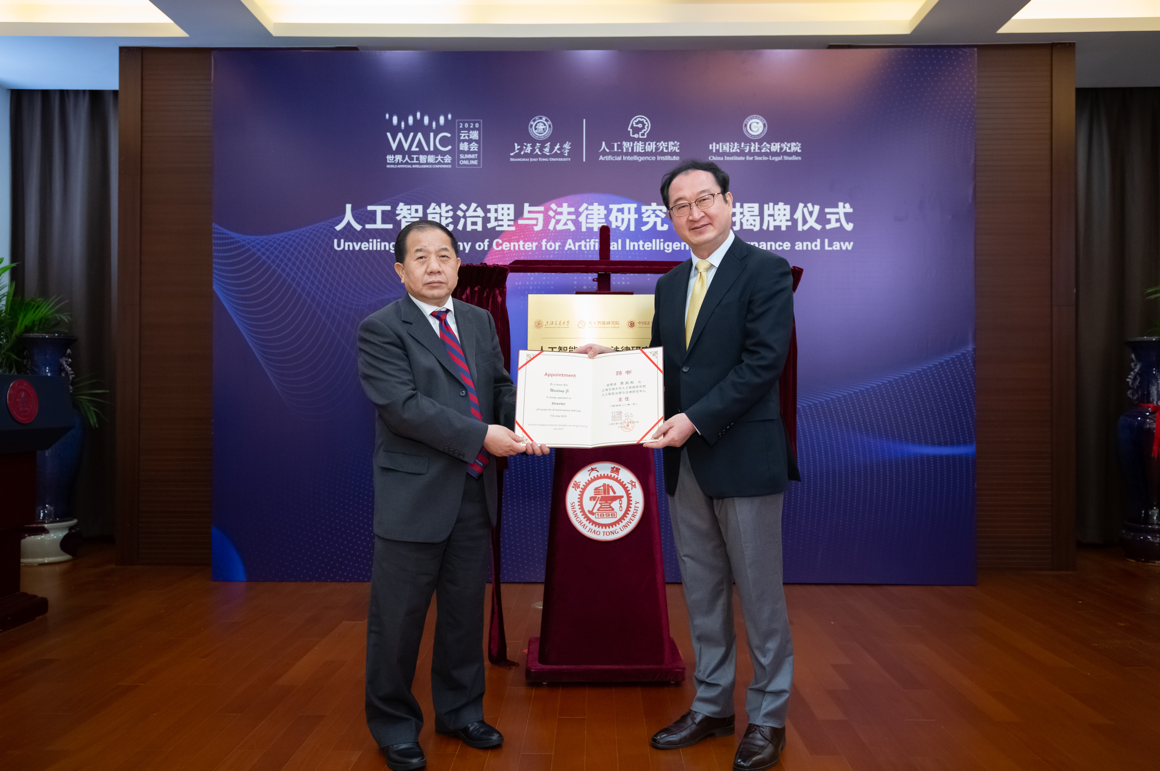
Finally, the director and core members of the “Center for Artificial Intelligence Governance and Law” delivered congratulations respectively.
Ji Weidong stated that the official establishment of the “Center for Artificial Intelligence Governance and Law” has received the care and support of the Expert Advisory Committee of the National New-Generation Artificial Intelligence Innovation and Development Pilot Zone, the Shanghai Law Society and our University. The center aims to make an in-depth analysis of artificial intelligence governance and related legal issues, and proposes a Chinese plan from both theoretical and practical aspects. In the future, the center will strengthen the interdisciplinary and cross-border cooperation of the integration of arts and sciences, promote research and communication in the context of the principles, ethics, policies, technical standards of and laws and rules about artificial intelligence, promote institutional innovation in the context of scientific and technological innovation, and then explore the rule of law model suitable for the era of artificial intelligence in accordance with the plans and commissions of the Artificial Intelligence Institute and China Institute for Social-Legal Studies.
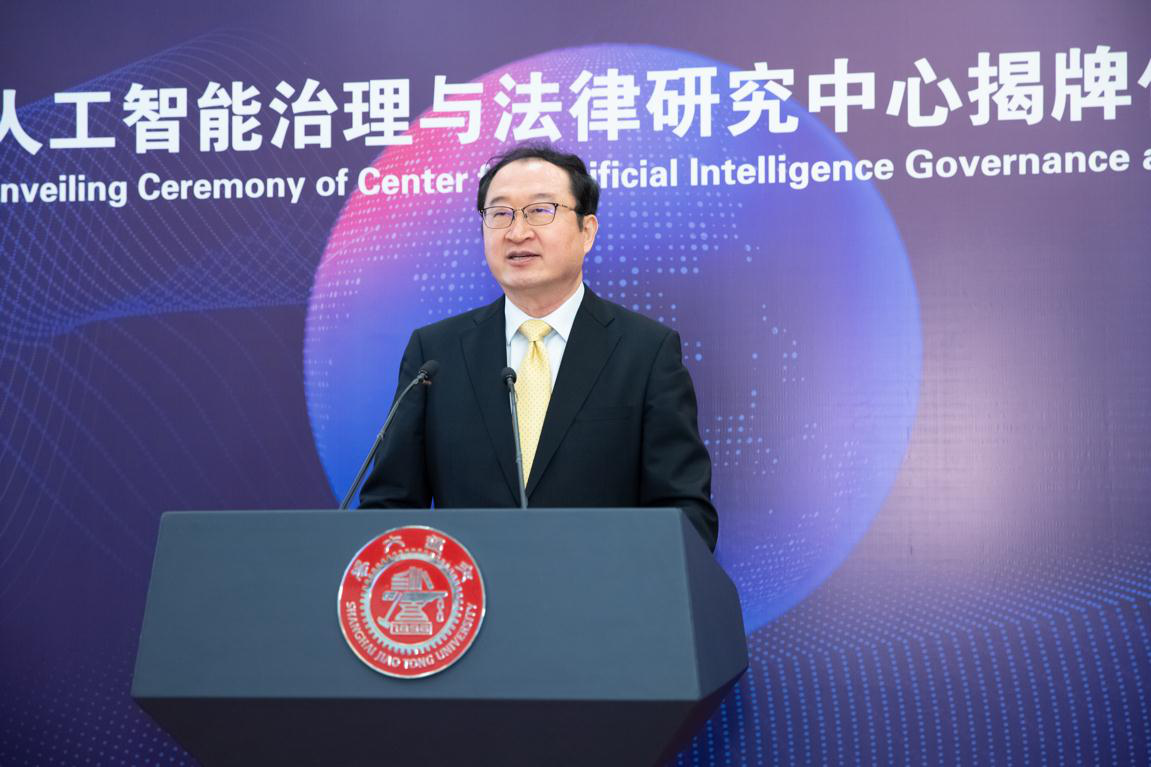
Yang Xiaokang raised strong expectations for the center’s talent training, and looked forward to the center’s ability to take advantage of the cross-integration of artificial intelligence and law, introduce intellectual resources in the field of artificial intelligence and big data into the field of law, explore innovation of social governance models and a legal research paradigm, and cultivate interdisciplinary and compound talents with a solid theoretical foundation and innovative capabilities in both law and artificial intelligence.
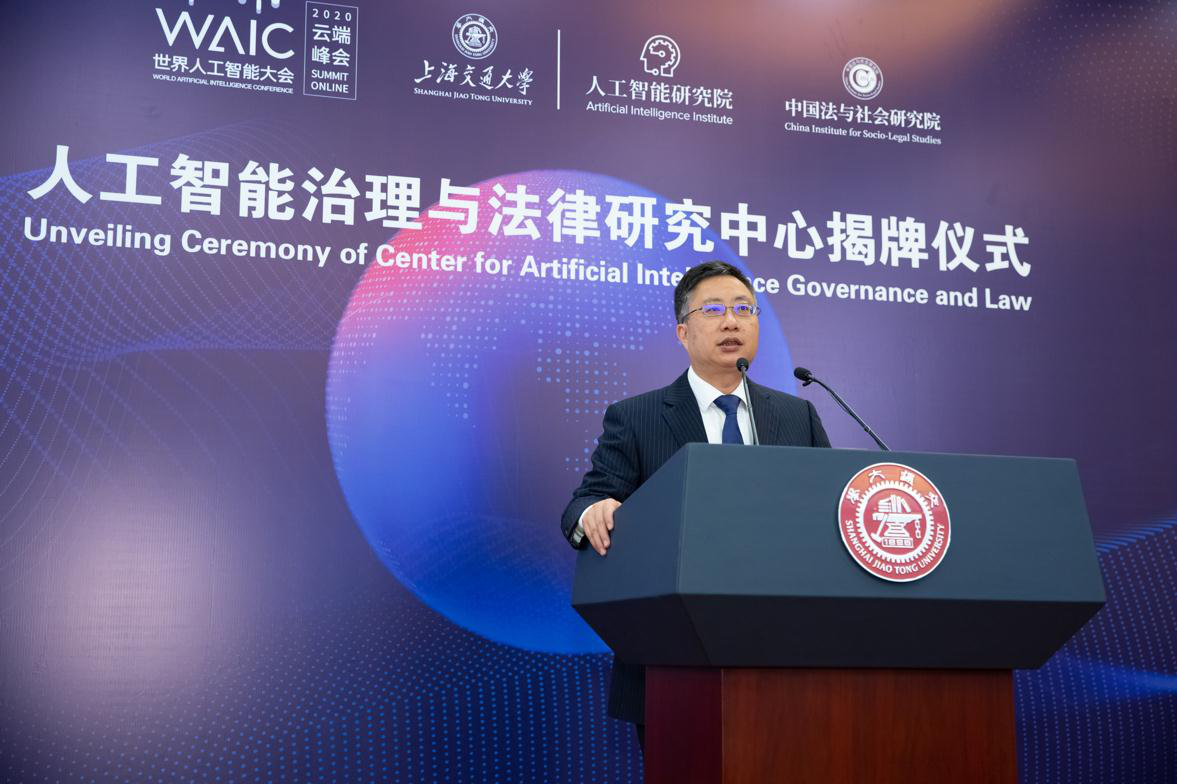
Cheng Jinhua pointed out that we are currently standing on the edge of a paradigm revolution in legal research. One hundred years ago, the rise of legal doctrine marked the establishment of an internal perspective of the legal system. Now to promote the new paradigm revolution, we need an external perspective for the legal system and solutions to the disconnection between facts and norms through scientific methods. We look forward to the contributions of the research center in this paradigm revolution.
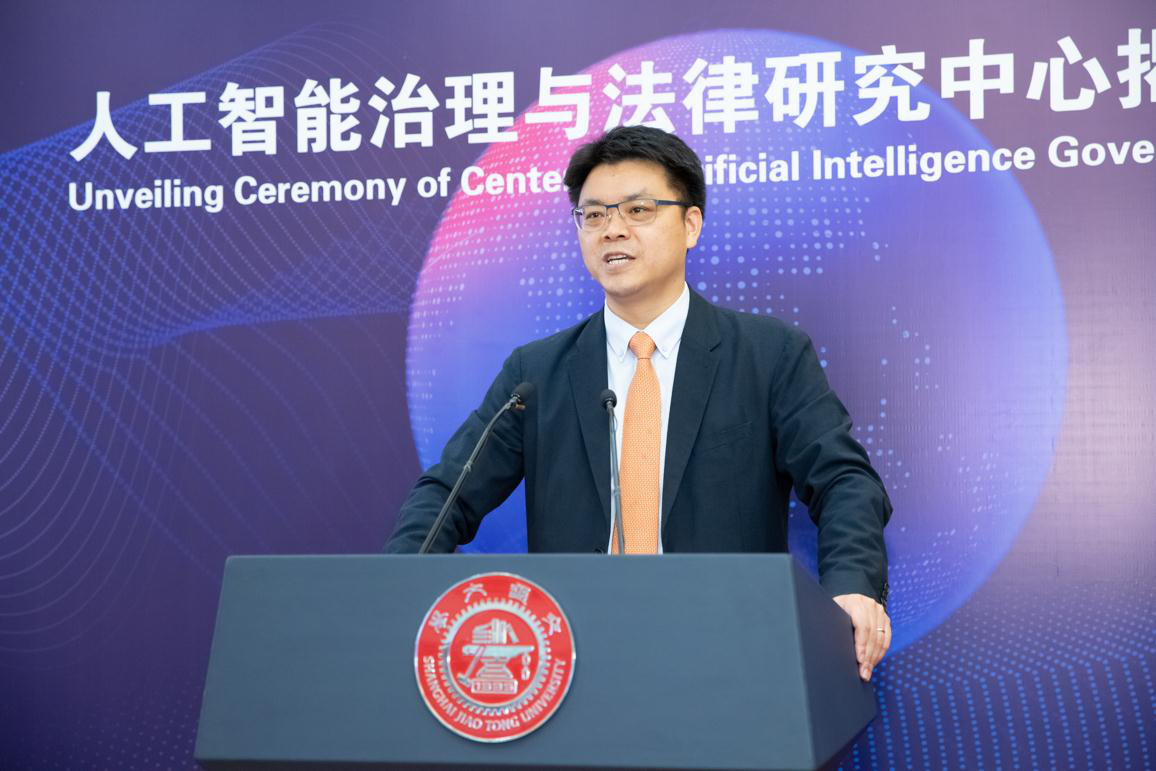
Jin Yaohui stated that with the in-depth cooperation with scholars of law school in recent years, he notes the growing importance of interdisciplinary subjects. It is important for the students studying artificial intelligence to understand the application requirements and institutional background in the field of law, and for the law school students to obtain a deeper understanding about artificial intelligence. It is expected that the research center will promote the healthy development of artificial intelligence through practical applications, key research and development, laws and regulations and other fields.

Zheng Ge pointed out that the establishment of the center is conducive to promoting research in two aspects. The first is the law of algorithms, which involves the use of laws to regulate algorithms, such as transparency, interpretability, and data protection of algorithms. The second is the algorithm of law, that is, the use of artificial intelligence to express the law and promote the reform of the system.
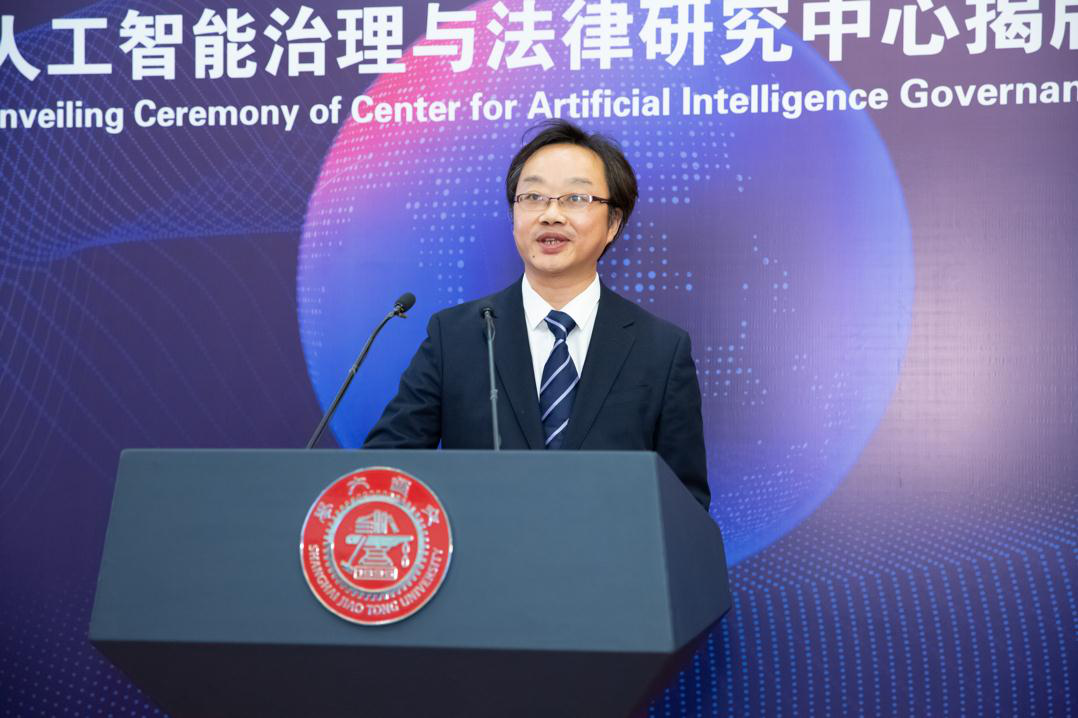
He Yuan stated that with the arrival of the fourth-generation industrial revolution based on artificial intelligence, blockchain and big data, the research of new liberal arts and interdisciplinary research at the intersection of arts and sciences will become an inevitable trend. Against this background, the establishment of the center is of great significance. It is expected that the center will build a world-class, leading academic platform and talent base in China, and achieve fruitful results in the cross-research of artificial intelligence.
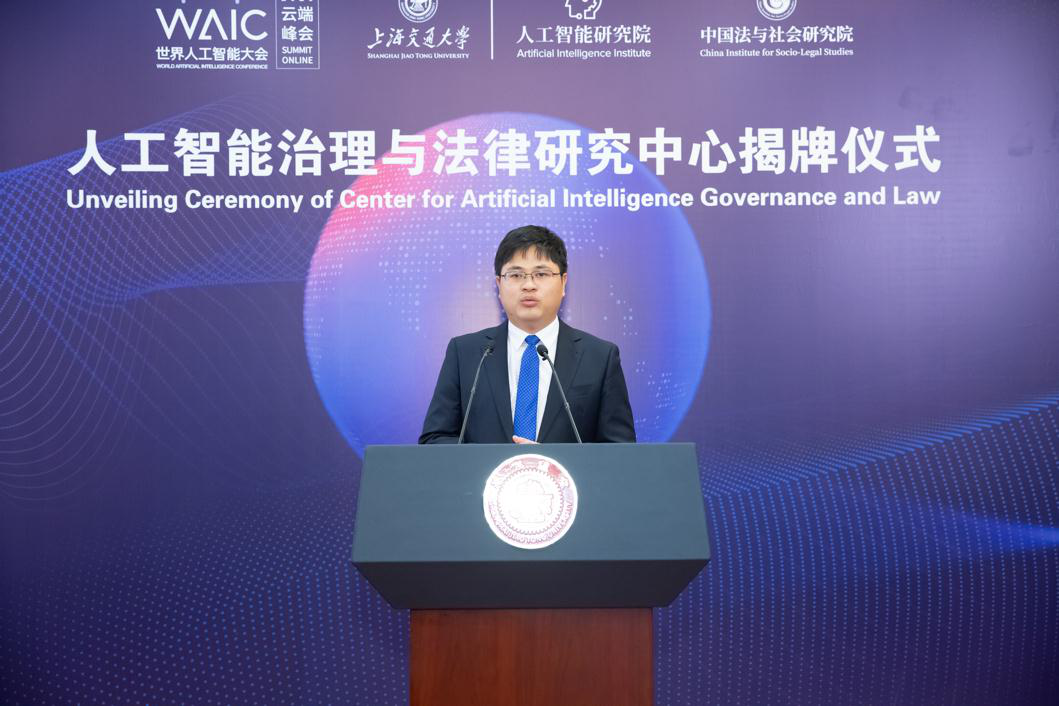
The establishment of the “Center for Artificial Intelligence Governance and Law” marks a new stage of the research on the integration of the arts and sciences of our University, and it also means that an important entry point has been found in the construction of the “rule of law social science and technology system”. The research center will use its ability of 1+1 > 2 to expand new possibilities for the future of the legal field in the trend of the scientific and technological revolution, develop artificial intelligence to serve new social boundaries, and contribute to China’s construction of a technologically strong country and a society ruled of law. The Center is the first institution in China that focuses on artificial intelligence governance and related legal issues. From the preparatory stage, it has been highly valued and supported by the National New-Generation Artificial Intelligence Governance Professional Committee, Shanghai National New-Generation Artificial Intelligence Innovation Development Pilot Zone, Shanghai Law Society, etc. The research center will conduct in-depth research and exchanges on the principles, ethics, policies, technical standards, laws and regulations of artificial intelligence governance and data governance, focusing on the major issues of the artificial intelligence-assisted system of the law and the legal decision-smaking system of artificial intelligence and data law, and promote legal system innovation in the context of technological innovation so as to explore the rule of law model suitable for the era of artificial intelligence in accordance with the plans and commissions of the Artificial Intelligence Institute and China Institute for Social-Legal Studies.
Attachment: “Shanghai Jiao Tong University Center for Artificial Intelligence Governance and Law” unveiling ceremony video
Link: https://pan.baidu.com/s/1qN9xZgTmf8U0xwKDmSRBjw
Extraction code: ipozw
© 2018 KOGUAN SCHOOL OF LAW,SHANGHAI JIAO TONG UNIVERSITY, ALL RIGHTS RESERVED 沪ICP:2010823